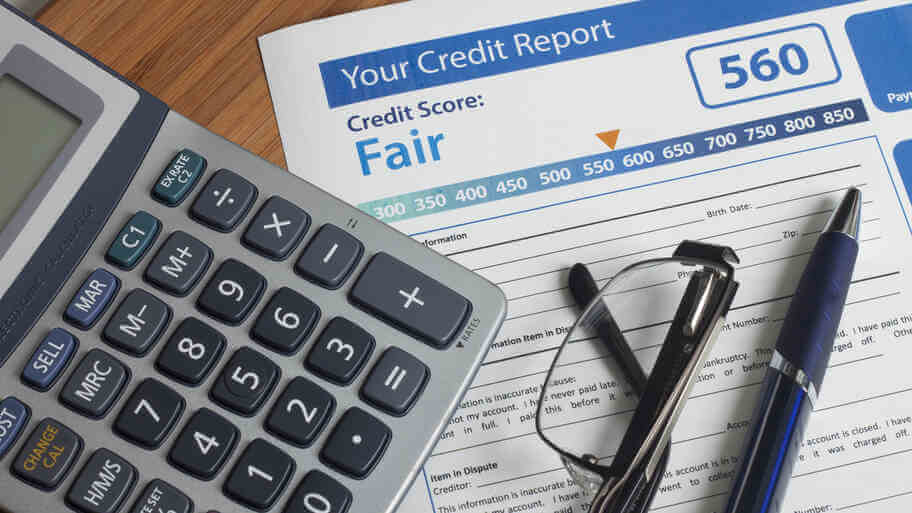Both credit reports and scores play a big role in qualifying for loans, credit cards, insurance policies, apartment rentals, and more. Your credit score is calculated based on the information in your credit report. But there are some important differences in how each is used.
Given the important role that both your credit score and credit report play, it’s essential that you understand both.
Understanding Your Credit Score
Some lenders, especially credit card companies, don’t look at your credit report. They don’t want to dig through all the information it includes to determine how much of a credit risk you are. Instead, they will pay someone else to do this on their behalf.
The two main companies used for this evaluation are FICO and VantageScore. These companies will summarize your creditworthiness by giving you a score. The credit score that they calculate is a snapshot of your credit report. You can think of it as a grade you would receive in school, but instead it evaluates your credit history.
Your credit score can range from 300 to 850. The higher your score, the less “risky” you seem to lenders. This means having an 835 credit score rating is much better than a 600 credit score rating.
The company determining your credit score uses five categories to calculate it:
-
-
- Payment history – makes up 35% of the score
- Amounts owed – makes up 30% of the score
- Length of credit history – makes up 15% of the credit score
- New credit – makes up 10% of the credit score
- Credit mix – makes up 10% of the credit score
-
FICO (or another company) determines your score based on your credit report, which is provided to them by one of three credit bureaus: Equifax, Experian, or TransUnion. Each lender also uses a unique scoring model from FICO, so you may have slightly different credit scores depending on the lender.
You aren’t entitled to receive your credit score automatically or for free like you can with your credit report. In some situations, you have to pay for it. However, the Dodd-Frank Act does give you the right to see what your credit score was when a creditor used it to decide whether or not to extend credit to you. Some credit card companies offer this for free, just for using their services.
Just remember, the higher your credit score is, the more likely you will be to get more credit offers. Also, it is much easier to get a car loan with a 775 credit score or a similarly good score than a lower one.
Being late on payments, using too much of your available credit, and having over-limit credit cards affects credit scores. So be diligent with paying off your current credit cards if you want to get more credit.
Credit Reports Explained
Your credit report is a comprehensive record of your credit history. This includes:
-
-
- Repossessions
- Bankruptcies
- Lender inquiries
- Public records
- Third-party collections
- Payment histories
- Past lines of credit
- Outstanding lines of credit
-
Everyone has three reports, each created by the three major credit bureaus.
A credit report is a collection of all credit-related data. The goal of the credit report is to help lenders determine if you are creditworthy and if they should extend credit to you.
The credit bureaus will also keep a history of your personal information and any relevant public records. The reports are usually similar across all three bureaus, but the formatting and content may vary. Also, the information included in each report can vary because not all creditors will report to all three credit bureaus.
Your credit report is used to determine if you will repay the debt on time. Sometimes, credit reports are used by insurers, as well, to determine proprietary insurance scores and by collection agencies to decide what accounts a borrower will repay first.
Some employers use modified reports provided by bureaus to help prevent negligent hiring claims and fraud. Landlords also use credit reports to determine what security deposit amount is appropriate.
There are things you may wonder, such as, “how long does a black mark stay on a credit report?” This depends on what the black mark is caused by. For example, a credit card payment that is 30 days past due won’t stay on your credit report as long as bankruptcy will. Also, if you have a preferred customer account on a credit report, it may make you seem more creditworthy and worth the “risk” of extending credit.
You can access a free copy of your credit report by going to AnnualCreditReport.com. This free report is available from each credit bureau every 12 months.
Key Differences: Credit Score vs. Credit Report
The difference between your credit score and credit report is that your score is just a single number grade. Your report is a compilation of all information that explains and highlights your financial situation.
While they are different, they are also linked. For example, the score is generated from the report. A lender can use both to determine if you should be given credit.
While your credit score is important, you should get to know the details of your credit report. That is what will help you raise your credit score, after all.
For example, if you find mistakes or inaccuracies on your credit report, you want to have those fixed, which can help raise your credit score. Remember that any positive change made to your credit score will take some time to show up.
Final Thoughts
As you can see, your credit score and credit report are different, but your credit report is used to generate your credit score. With that in mind, both are important and reflect your overall financial health. It is good to know what these are and check them often to ensure they are accurate.
After all, the higher your credit score is, the more likely you are to be offered credit from lenders. While the information on your credit report can seem like a lot, it is imperative to learn the information that is on there in order to make smart financial decisions. Being informed will help you take control of your financial situation.
Featured Image: Megapixl







